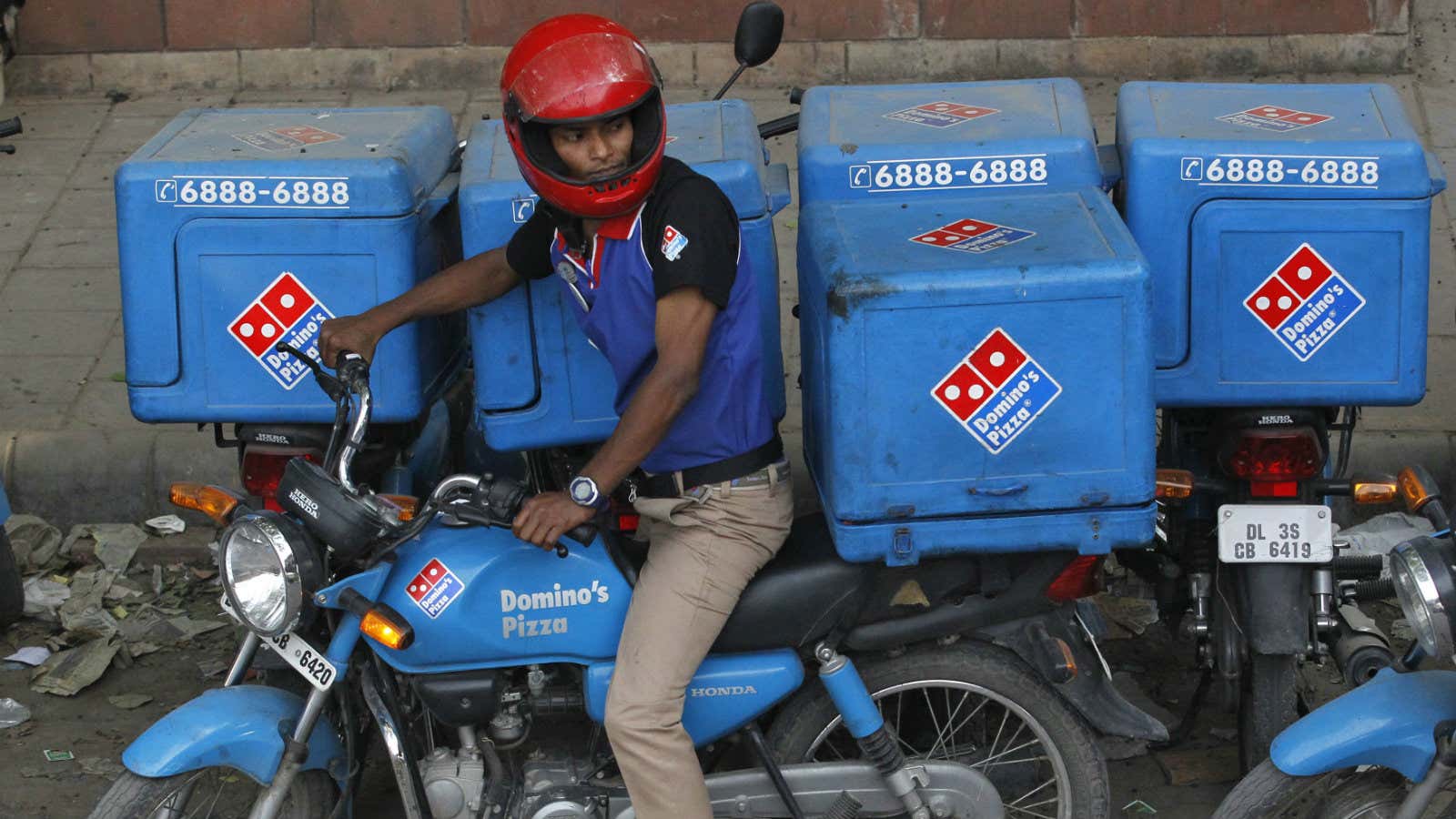In parts of the world where explaining your address can be a major nuisance, the simple process of ordering a pizza can turn into a complicated exercise.
In India, Domino’s Pizza wants to let customers skip the ordeal by allowing them create “smart addresses,” essentially a unique identity that a delivery person can put into a GPS system, which would reduce the effort of repeating a long address and nearby landmarks each time you want something sent to you.
Jubilant FoodWorks, which operates the Domino’s Pizza chain in India, says it has teamed up with Zippr (pdf), a smart-addresses startup, to make the technology available to customers around the country.
Founded in 2013 and based in Hyderabad, Zippr lets users create an eight-character, alphanumeric code that can take the place of a standard, four-line address. Domino’s—one of the world’s largest pizza chains—will start using Zippr’s services initially in Delhi and the national capital region, and roll it out to other cities over the next 15 days, the pizza company said on Nov. 19. The announcement helped send shares of Jubilant FoodWorks 1.9% higher on the BSE to Rs1,404.10.
Domino’s will make the Zippr service available on online and mobile orders first. Call centers for taking orders over the phone will get the technology by the end of the year.
“Delivery constitutes a significant part of our overall business and within that, the share of online ordering as been growing the fastest,” S. Murugan Narayanaswamy, senior vice president marketing for Domino’s Pizza India, said in a statement. “Realising that smart devices and laptop screens have become a major touch point for our consumers to reach us, we are investing heavily in technology and exploring all possibilities that enable us to offer better services.”
Another firm using Zippr is CommonFloor, a Bengaluru-based startup that lets users list properties on its real estate portal with a Zippr address. The code is meant to make it easier for prospective clients to find the listings online and physically.
Zippr also is working with Vijayawada Municipal Corporation in the southern Indian state of Andhra Pradesh, to assign smart address codes to houses, office complexes, and other structures in the area.
“Zippr can basically work like an Aadhar card [a 12-digit individual identification number issued by the Indian government to serve as a proof of identity] for houses, and the code can be integrated for utility services,” Aditya Vuchi, founder and CEO of Zippr, told Quartz. “Vijayawada is even looking to integrate Zippr codes with a grievance cell where users can text their problems relating to roads, electricity, etc., with the Zippr code, which will make it easier for authorities to track the exact location of the user and solve the problems faster.”
Zippr generates revenue by charging fees to the companies that use its codes. Fee schedules vary, but the most common one works on a fee-per-transaction basis, Vuchi said.
